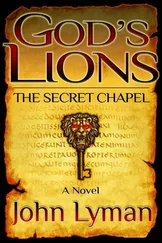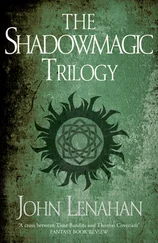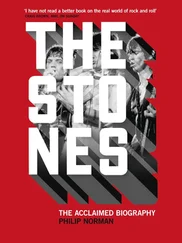JOHN
LENNON
THE LIFE
PHILIP NORMAN

To Jessica
Cover Page
Title Page JOHN LENNON THE LIFE PHILIP NORMAN
Dedication To Jessica
PART I THE COUNTRY BOY PART I THE COUNTRY BOY
1 WAR BABY
2 THE NORTHERN CONFEDERACY
3 THE OUTLAWS
4 SHORTSIGHTED JOHN WIMPLE LENNON
5 THE GALLOTONE CHAMPION
6 BUDDIES
PART II TO THE TOPPERMOST OF THE POPPERMOST
7 MY MUMMY’S DEAD
8 JEALOUS GUY
9 UNDER THE JACARANDA
10 MACH SCHAU
11 THE SINGING RAGE
12 SHADOWLANDS
13 LUCKY STARS
PART III A GENIUS OF THE LOWER CRUST
14 LEATHER TONSILS IN A THROAT OF STEEL
15 THE BIG BANG
16 THE TOP OF THE MOUNTAIN
17 REAL LIFE IN CINEMASCOPE
18 A MOST RELIGIOUS FELLOW
PART IV ZEN VAUDEVILLE
19 BREATHE
20 MAGIC, MEDITATION AND MISERY
21 THERE’S A GOOD LITTLE GURU
22 BACK TO VIRGINITY
23 BEDLAM
24 WITHDRAWAL SYMPTOMS
25 BEATLEDÄMMERUNG
PART V PIZZA AND FAIRY TALES
26 THE YIPPIE YIPPIE SHAKE
27 TROUBLE WITH HARRY
28 BEAUTIFUL BOY
29 HOMEBODY
30 STARTING OVER
POSTSCRIPT SEAN REMEMBERS
INDEX
Acknowledgments
Other Books By
Copyright
About the Publisher
ALSO BY PHILIP NORMAN
FICTION
Slip on a Fat LadyPlumridgeWild ThingThe Skaters’ WaltzWords of LoveEveryone’s Gone to the Moon
BIOGRAPHY AND JOURNALISM
The StonesThe Road Goes On ForeverTilt the Hourglass and Begin AgainYour Walrus Hurt the One You LoveAwful MomentsPieces of HateThe Age of ParodyThe Life and Good Times of the Rolling StonesElton JohnDays in the Life: John Lennon RememberedShout!: The Beatles in Their GenerationRave On: The Biography of Buddy Holly
PLAYS
The Man That Got AwayWords of Love
PART I THE COUNTRY BOY
I was never really wanted.
John Lennon was born with a gift for music and comedy that would carry him further from his roots than he ever dreamed possible. As a young man, he was lured away from the British Isles by the seemingly boundless glamour and opportunity to be found across the Atlantic. He achieved that rare feat for a British performer of taking American music to the Americans and playing it as convincingly as any homegrown practitioner, or even more so. For several years, his group toured the country, delighting audiences in city after city with their garish suits, funny hair and contagiously happy grins.
This, of course, was not Beatle John Lennon but his namesake paternal grandfather, more commonly known as Jack, born in 1855. Lennon is an Irish surname—from O’Leannain or O’Lonain—and Jack habitually gave his birthplace as Dublin, though there is evidence that his family had already crossed the Irish Sea to become part of Liverpool’s extensive Hibernian community some time previously. He began his working life as a clerk, but in the 1880s followed a common impulse among his compatriots and emigrated to New York. Whereas the city turned other immigrant Irishmen into labourers or police officers, Jack ended up as a member of Andrew Roberton’s Colored Operatic Kentucky Minstrels.
However brief or casual his involvement, this made him part of the first transatlantic popular music industry. American minstrel troupes, in which white men blackened their faces, put on outsized collars and stripey pantaloons, and sang sentimental choruses about the Swanee River, ‘coons’ and ‘darkies’, were hugely popular in the late 19th century, both as performers and creators of hit songs. When Roberton’s Colored Operatic Kentucky Minstrels toured Ireland in 1897, the Limerick Chronicle called them ‘the world’s acknowledged masters of refined minstrelsy’, while the Dublin Chronicle thought them the best it had ever seen. A contemporary handbook records that the troupe was about 30-strong, that it featured some genuinely black artistes among the cosmetic ones, and that it made a speciality of parading through the streets of every town where it was to appear.
For this John Lennon, unlike the grandson he would never see, music did not bring worldwide fame but was merely an exotic interlude, most details of which were never known to his descendants. Around the turn of the century he came off the road for good, returned to Liverpool and resumed his old life as a clerk, this time with the Booth shipping line. With him came his daughter, Mary, only child of a first marriage that had not survived his temporary immersion in burnt-cork makeup, banjo music and applause.
When Mary left him to work in domestic service, a solitary old age seemed in prospect for Jack. His remedy was to marry his housekeeper, a young Liverpool Irishwoman with the happily coincidental name of Mary Maguire. Although 20 years his junior, and illiterate, Mary—better known as Polly—proved an ideal Victorian wife: practical, hardworking and selfless. Their home was a tiny terrace house in Copperfield Street, Toxteth, a part of the city nicknamed ‘Dickens Land’, so numerous were the streets named after Dickens characters. Rather like Mr Micawber in David Copperfield , Jack sometimes talked about returning to his former life as a minstrel and earning fortunes enough for his young wife, as he put it, to be ‘farting against silk’. But from here on, his music-making would be confined to local pubs and his own family circle.
Jack’s marriage to Polly gave him a second family of eight children. Two died in infancy, a fact that the superstitious Polly attributed to their Catholic baptism. The next six therefore received Protestant christenings, and all survived: five boys, George, Herbert, Sydney, Alfred and Charles, and a girl, Edith. Polly did a heroic job of feeding them all on Jack’s modest wage. But their diet of mainly bread, margarine, strong tea and lobscouse—the meat-and-biscuit stew from which Liverpudlians get their nickname Scousers—was chronically lacking in essential nutrients. This had its worst effect on the fourth boy, Alfred, born in 1912, who as a toddler developed rickets that stunted the growth of his legs. The only remedy known to paediatrics in those days was to encase both legs in iron braces, hoping the ponderous extra weight would promote growth and strength. Despite years burdened by the braces, Alf’s legs remained puny and foreshortened, and he failed to grow any taller than 5′4. He was, even so, a good-looking lad, with luxuriant dark hair, merry eyes and the distinctive Lennon family nose, a thin, plunging beak with sharply defined clefts over the nostrils.
Jack’s musical talents were passed on to his children in varying measure. George, Herbert, Sydney, Charles and Edith all had passable singing voices, and the boys played mouth organ, the only instrument young people in their circumstances could afford. Alf, however, showed ability of an altogether higher order, allied to what his brother Charlie (born in 1918) called ‘that show-off spirit’. He could sing all the music-hall and light operatic songs that made up the First World War hit parade; he could recite ballads, tell jokes and do impressions. His speciality was Charlie Chaplin, the anarchic little tramp whose film comedies had created the unprecedented phenomenon of an entertainer famous all over the world. At family gatherings, Alf would sit on his father’s knee in his Tiny Tim leg irons, and the two would sing ‘Ave Maria’ together, with sentimental tears streaming down their faces.
Читать дальше













![John Bruce - The Lettsomian Lectures on Diseases and Disorders of the Heart and Arteries in Middle and Advanced Life [1900-1901]](/books/749387/john-bruce-the-lettsomian-lectures-on-diseases-and-disorders-of-the-heart-and-arteries-in-middle-and-advanced-life-1900-1901-thumb.webp)